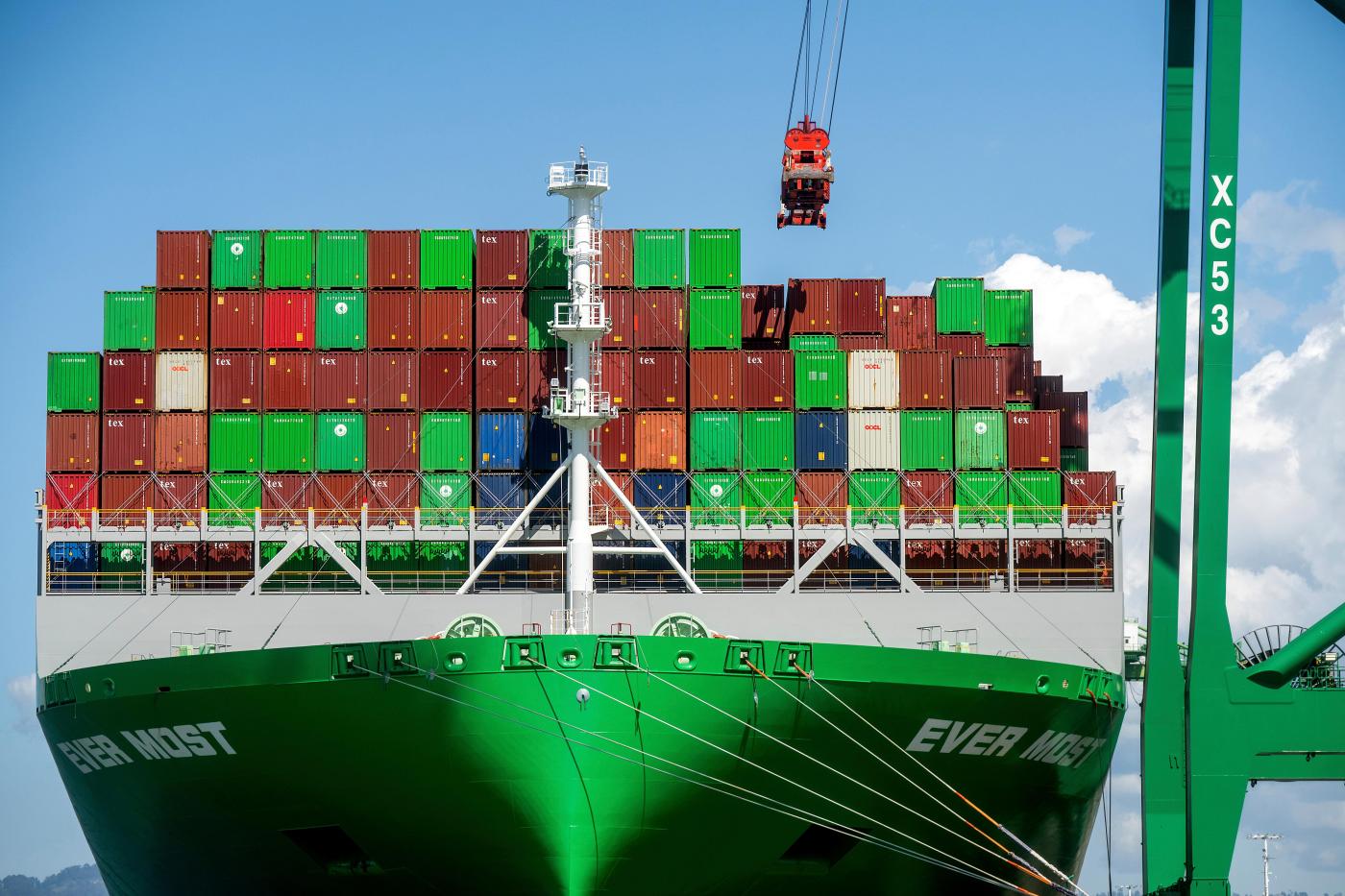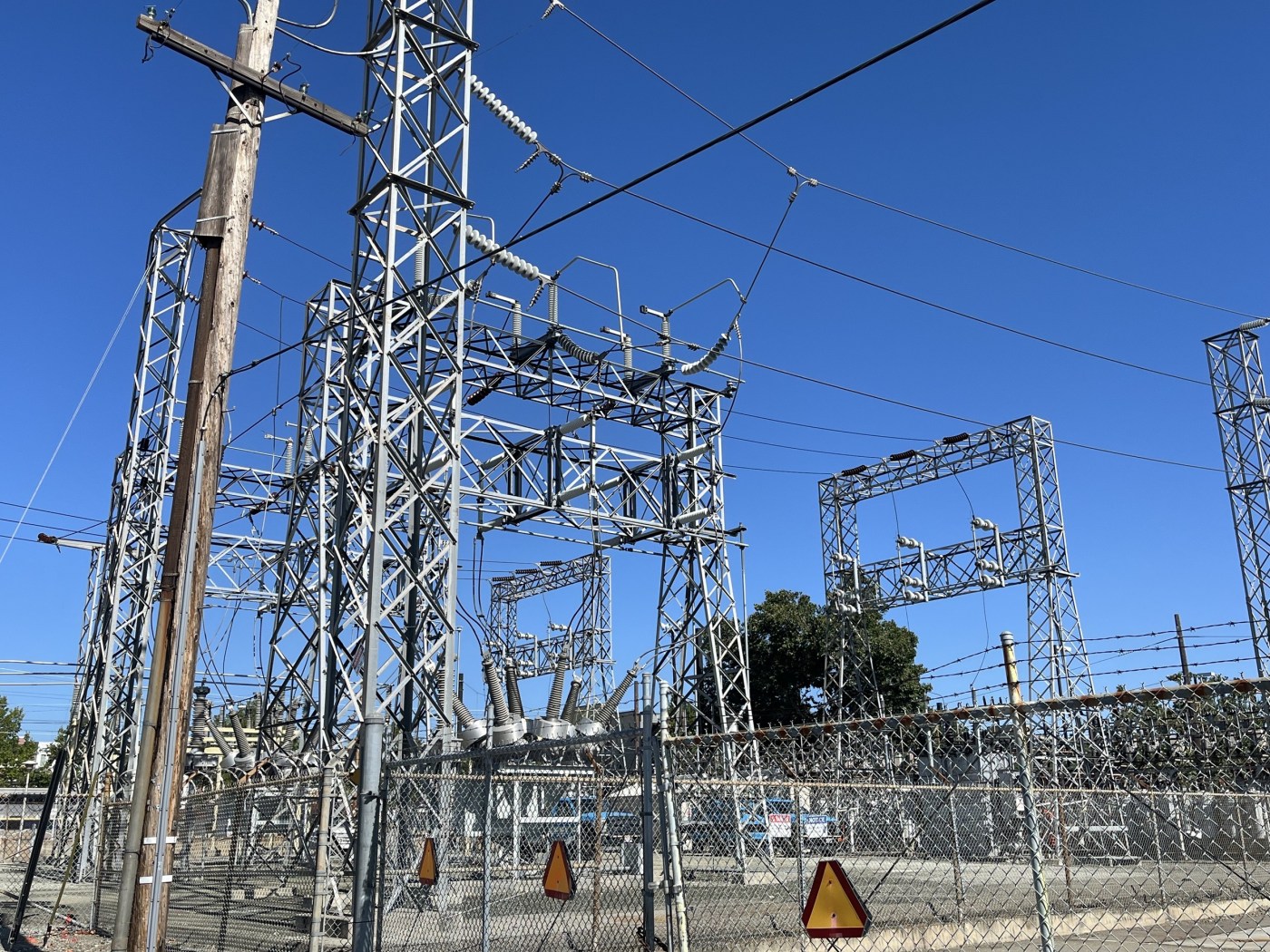As President Donald Trump blasts American allies and adversaries alike for “unfair trade” and sets steep tariffs, California Governor Gavin Newsom has a different message for the nations of the world.
“Donald Trump’s tariffs do not represent all Americans,” the Democrat said in a video posted on social media last week, as the stock market took a nosedive and investors coped with steep losses. “Our state of mind is around supporting stable trading relationships around the globe.”
The governor took a step further last week when he asked nations to exempt California-made products from retaliatory tariffs, which have already been announced by China and Canada, two of the state’s top trading partners.
Related Articles
Friedman: How Trump’s tariffs play right into China’s hands
Port of Oakland handles most of the Bay Area’s imports and exports. How will Trump’s tariffs affect it?
How tariffs on Canadian energy imports will drive California prices higher
Why Trump’s tariffs will make Bay Area housing more expensive
How Trump’s 1-for-1 tariff plan threatens the global economy
Newsom then directed his administration, including an international trade and affairs team housed in the Governor’s Office of Business and Economic Development, to seek out “new opportunities to expand trade” such as “strategic partnerships” to blunt the rising prices and supply-chain disruptions that he and many economists expect from Trump’s “America first” approach to trade.
Sean Randolph, senior director of the Bay Area Council Economic Institute, a San Francisco think tank, said Newsom is right to take that approach for California, a state heavily reliant on international trade.
“Other countries do have a friend in California,” he said.
But as a mere governor, Newsom doesn’t have the power to make trade pacts or set tariffs, which are “the heart of the issue,” Randolph and other experts said. The governor can partner with nations to promote tourism and education and forge closer personal ties with leaders overseas, but trade policy is solely the territory of the federal government.
“What he can actually do, I think, is pretty limited,” Randolph said.
Randolph, who was California’s top trade official in the 1990s, isn’t alone in bracing for inflation and disruptions as Trump’s tariffs set in. According to Newsom’s office, the import taxes will “have an outsized impact on California businesses.”
The Golden state is the top importer of foreign goods in the U.S., $491.5 billion worth, chiefly for computer and electronic products, according to the U.S. Department of Commerce. California exports totaled $183 billion last year, second to Texas’ $455 billion, with most goods destined for Mexico, Canada and China as well as other Asian markets. California shipped nearly $50 billion worth of computers and electronics, its top export, last year, the commerce agency’s data shows.
California has close trade ties with Mexico, and two-way trade reached $98 billion last year, according to the Commerce department. Mexico is a major source of agricultural products such as avocados and berries to California residents. It’s also common for goods like cars to flow back-and-forth repeatedly between Southern California and Mexico during production, Randolph said.
On Friday, a week since Newson first made his overtures to foreign nations, a spokesperson did not respond when asked if the governor’s office had made progress toward tariff carve-outs or partnerships with other nations.
Nor did a representative of the governor’s economic development office provide more detail about the kind of strategic partnerships that staff are now pursuing with international diplomats behind the scenes, or how those might soothe economic pain.
“The administration is actively engaging with our international partners and exploring opportunities to strengthen our shared economic interests,” Newsom spokesperson Tara Gallegos said in an email.
In public appearances and statements, Newsom is quick to remind audiences that California’s roughly $4.1 trillion economy is the largest in the nation and a powerhouse for tech, agriculture and manufacturing.
Even so, as a governor, Newsom can’t sign a binding trade pact with any foreign nation, per the U.S. Constitution, said Maurice Obstfeld, a fellow at the Peterson Institute for International Economics in Washington D.C. and an economics professor at at UC Berkeley. The Commerce Clause grants Congress power “to regulate Commerce with foreign Nations, and among the several States.”
Despite his overtures, Newsom’s hands are tied on trade, he said.
“No country makes trade agreements with subnational regions,” Obstfeld said in an email. “The U.S. federal government has not made California a free-trade enclave.”
He called Newsom’s proclamations “grandstanding without substance.”
California is already in dozens of partnerships with foreign nations from China and Mexico to Armenia in the last decade. Many are agreements to coordinate on climate action. These partnerships can be useful, but they don’t carry the weight of law, said Russell Hancock, president of Joint Venture Silicon Valley, a Bay Area think tank.
Nonetheless, Hancock applauded Newsom for reaching out to trade partners.
“Good for him, he’s making a play,” he said. “And let’s be real, he’s also positioning himself. But that’s how you do things.”
Newsom has tried to toe the line between appeasing Trump and standing apart since the Republican took office in January. The Marin County Democrat is also famously ambitious and is widely rumored to be planning a run for president in 2028.
Some of these partnerships focus on trade, including a 2019 agreement with the Mexican Ministry of Economy in 2019 “to expand trade and investment cooperation.”
But going beyond a loose agreement and actually exempting California products from tariffs, as Newsom has pleaded, is probably riskier for countries, experts said. China, for instance, is now facing total import taxes of 145%, the Trump administration said Thursday, and has responded in kind with its own steep tariffs on U.S. products.
Granting California a carve-out would probably draw the ire of Trump — risking even bigger import taxes — Obstfeld said.
“What would they even gain? Other than drawing enmity and higher tariffs from the president,” he said.
Gallegos, the spokesperson for Newsom, did not comment on this critique when asked to respond.
Economists nationally are expecting Trump’s tariffs to drive up prices on everything from homes, cars, iPhones, running shoes and coffee. With the import taxes, Trump is intending to reverse a 50-year trend of American companies off-shoring manufacturing overseas and bring more factories back home.
Beyond the tough tariffs on Chinese imports, which are critical to the U.S. tech and clean energy sectors as well as a slew of others, the Trump administration imposed a blanket 10% tariff on most nations. Trump said he rolled back even stricter tariffs this week because of stock market turmoil and anxiety.
His administration also set a 25% tariff on imported car parts — hitting the U.S. auto industry that depends on a deeply integrated supply chain with other nations — as well as steel and aluminum. Canada and Mexico are also subject to a new tariff on goods imported outside of the scope of the United States-Mexico-Canada Agreement, signed by Trump in his first term, which replaced the North American Free Trade Agreement (NAFTA) that eliminated tariffs on most goods in 1994.
In response, Canada has set a 25% tax on American cars and trucks. Mexican officials have said they do not want to set tariffs in retaliation but may do so.
The Bay Area Council institute’s Randolph said it’ll take a few months at the soonest for the full effects of Trump’s toughened trade policies to materialize. But one thing looks clear already.
“We’re all going to live with higher prices,” he said.





